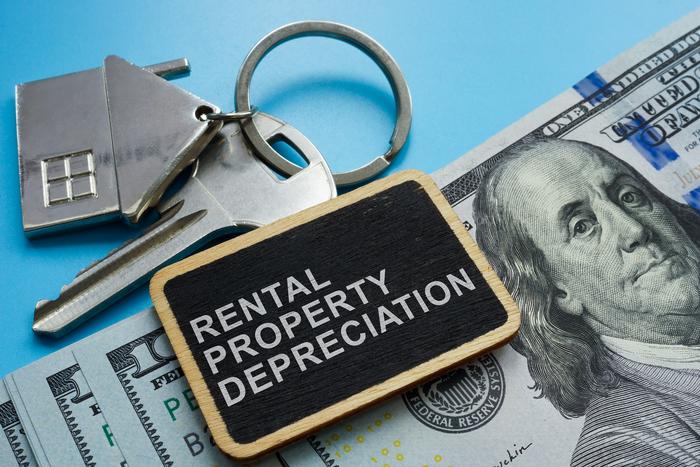How can you get started in real estate investing?
If you're interested in getting started in real estate investing, there are several steps you can take to start building your portfolio. Here are some tips to help you get started:
- Educate yourself: Before you start investing in real estate, it's important to learn as much as you can about the market and different investment strategies. You can do this by reading books and articles, attending workshops and seminars, and talking to other experienced investors.
- Develop a plan: Once you have a good understanding of the real estate market and different investment strategies, you should develop a plan for how you want to approach investing. This should include setting goals, identifying the types of properties you're interested in, and deciding on a budget and timeline.
- Save money: Real estate investing typically requires a significant amount of capital, so it's important to start saving as soon as possible. You should aim to save enough money to cover the down payment and closing costs on your first property, as well as any additional funds you may need for repairs and improvements.
- Find a property: Once you have your plan and savings in place, you can start looking for properties that fit your investment criteria. You can search for properties online, through real estate agents, or at real estate auctions and foreclosure sales.
- Evaluate the property: Before you make an offer on a property, you should carefully evaluate its condition, location, and potential for returns. This may involve hiring a professional inspector to assess the property's condition, and conducting market research to determine the property's value and potential for rental income or appreciation.
- Make an offer: Once you've found a property you're interested in, you can make an offer to the seller. This should include the purchase price you're willing to pay, as well as any contingencies, such as a financing contingency or inspection contingency.
- Close the deal: If the seller accepts your offer, you'll need to complete the transaction by signing a purchase agreement and paying the closing costs. You may need to obtain financing to cover the purchase price, or use your savings to pay for the property outright.
Real estate investing can be a rewarding and profitable way to build wealth, but it's important to approach it carefully and with a solid plan in place. By educating yourself, developing a plan, and carefully evaluating properties, you can increase your chances of success and minimize your risks.
How do real estate investors make money?
There are several ways that real estate investors can make money. Some common strategies include buying properties and holding them for the long-term to generate rental income, flipping properties by buying them at a low price and selling them at a higher price, and developing properties by building new homes or improving existing properties and then selling them at a higher price. Real estate investors can also make money by borrowing against the equity in their properties, or by creating and selling contracts that give others the right to buy a property at a future date for a predetermined price.
How do real estate investors find deals?
Real estate investors typically find deals in a variety of ways. Some common strategies include networking with other investors and real estate professionals, searching for properties online and in person, and attending real estate auctions and foreclosure sales. Investors may also find deals through direct mail marketing, which involves sending letters or postcards to property owners in a specific area to let them know the investor is interested in buying their property. Additionally, investors may use a variety of tools and services, such as property databases and real estate software, to help them find and evaluate potential investment opportunities.
What are the different types of real estate investors?
There are several different types of real estate investors, each with their own unique strategies and goals. Some common types of real estate investors include buy-and-hold investors, who buy properties and hold onto them for the long-term to generate rental income; fix-and-flip investors, who buy properties, improve them, and then sell them at a higher price; and wholesale investors, who find deeply discounted properties and then sell them to other investors at a higher price. Other types of real estate investors include developers, who build new homes or improve existing properties; and landlord investors, who own and manage rental properties.
What is a real estate wholesaler?
A real estate wholesaler is a type of real estate investor who buys properties at a deeply discounted price and then sells them to other investors at a higher price. The wholesaler's profit is the difference between the purchase price and the sale price of the property. Real estate wholesalers often use a variety of strategies to find and acquire properties, such as networking with other investors and real estate professionals, searching for properties online and in person, and attending real estate auctions and foreclosure sales. They may also use direct mail marketing to reach out to property owners and let them know the wholesaler is interested in buying their property. Once a property is acquired, the wholesaler will typically make any necessary repairs or improvements and then sell it to another investor, often using a real estate agent to facilitate the transaction.
How is short-term rental income taxed in the united states?
In the United States, short-term rental income is typically taxed as ordinary income. This means that the income you earn from renting out your property for short periods of time, such as a few days or weeks, is subject to the same tax rates as your other earned income, such as wages or salary.
However, there are some exceptions and special rules that may apply to the taxation of short-term rental income. For example, if you rent out your property for fewer than 15 days per year, you are not required to report the income on your tax return. Additionally, if you use the property as your primary residence for part of the year and rent it out for the rest of the year, you may be able to exclude some of your rental income from tax using the "home rental exclusion" rule.
It's important to note that in addition to income tax, you may also be subject to other taxes on your short-term rental income, such as local hotel or occupancy taxes. You should consult with a tax professional or the IRS for more information on the specific taxes that may apply to your situation.
How can you reduce your tax liability from real estate profits?
There are several ways that you can reduce your tax liability from real estate profits. Some common strategies include taking advantage of tax deductions and credits, using tax-advantaged retirement accounts to invest in real estate, and structuring your real estate investments in a way that minimizes your tax burden.
One of the most effective ways to reduce your tax liability from real estate profits is to take advantage of deductions and credits that are available for real estate investments. For example, you may be able to deduct the costs of maintaining and improving your property, such as repairs and renovations, from your taxable income. You may also be able to claim credits for energy-efficient improvements to your property, or for purchasing a property in a designated low-income area.
Another way to reduce your tax liability from real estate profits is to use tax-advantaged retirement accounts, such as a self-directed IRA or 401(k), to invest in real estate. These accounts allow you to invest in real estate and other alternative assets, and the income and gains from these investments are typically tax-deferred or tax-free. This can provide significant tax savings over the long-term.
Finally, you can also minimize your tax liability by structuring your real estate investments in a way that takes advantage of tax-efficient investment vehicles, such as partnerships or limited liability companies. These structures can allow you to distribute income and losses among the members of the partnership or LLC in a way that minimizes your overall tax burden. It's important to consult with a tax professional to determine the best strategy for reducing your tax liability from real estate profits.
How do real estate investors lose money?
Real estate investors can lose money in a variety of ways. Some common causes of losses in real estate investing include buying properties at inflated prices, failing to properly evaluate the condition or potential of a property, and not properly managing the property or the tenant relationship.
One of the biggest risks in real estate investing is buying a property at an inflated price. This can happen when an investor gets caught up in the excitement of a hot market and overpays for a property, or when an investor doesn't conduct thorough market research and doesn't realize the true value of a property. When this happens, the investor may not be able to generate sufficient rental income or sell the property for a profit, resulting in a loss.
Another common way that real estate investors lose money is by failing to properly evaluate the condition or potential of a property. This can happen when an investor doesn't conduct a thorough inspection of the property or doesn't take the time to research the local market and understand the property's potential for rental income or appreciation. If an investor buys a property without fully understanding its condition or potential, they may be in for a rude awakening when they discover that the property needs significant repairs or isn't in a desirable location.
Real estate investors can also lose money if they don't properly manage the property or the tenant relationship. This can include failing to screen tenants properly, not enforcing the terms of the lease agreement, or not properly maintaining the property. If an investor doesn't take the time to properly manage their property and tenants, they may face costly repairs, eviction expenses, or other unexpected expenses that can eat into their profits and lead to losses.
What can retail real estate investors learn from institutional real estate investors?
Institutional real estate investors are typically large organizations with significant resources and experience in the real estate market. As a result, retail real estate investors can learn a lot from their strategies and approaches. Some of the key things that retail investors can learn from institutional investors include the importance of conducting thorough market research and due diligence, the value of building a diversified portfolio, and the need to develop strong relationships with key industry players. Additionally, institutional investors often have access to professional management teams and sophisticated financial modeling tools, which can provide valuable insights and guidance for retail investors. Ultimately, studying the strategies and approaches of institutional investors can help retail investors make more informed decisions and improve their chances of success in the real estate market.
What kind of financing is available to real estate investors?
There are several types of financing available to real estate investors. The most common types of financing include traditional loans from banks or other financial institutions, private loans from individual investors, and government-backed loans such as those offered through the Small Business Administration (SBA). Additionally, real estate investors can often leverage the equity in their existing properties to obtain financing for new investments. In some cases, investors may also be able to secure financing through joint ventures or partnerships with other investors. The type of financing that is best for a particular investor will depend on their specific needs and circumstances. It is important for investors to carefully consider their options and consult with financial advisors to determine the best financing solution for their situation.
What is a hard money loan in real estate?
A hard money loan is a type of short-term financing that is often used by real estate investors. These loans are typically provided by private investors or companies, rather than traditional financial institutions such as banks. Hard money loans are typically secured by the property being purchased, and may have higher interest rates and more stringent terms than traditional loans. Hard money loans are often used by investors to quickly acquire a property, with the intention of refinancing the loan with a more traditional lender at a later date. These loans are typically used when a property is in need of significant repairs or renovations, and may not qualify for traditional financing. Overall, hard money loans can be a useful financing option for real estate investors, but they should be carefully considered and used only as a last resort in most cases.
How to quickly analyze a deal? Three quick rules to use: 2% rule; 50% rule and 70% rule.
The 2% rule is a guideline often used by real estate investors to determine whether a property is worth investing in. The rule says that the monthly rent for a property should be at least 2% of the purchase price. For example, if a property is purchased for $100,000, the monthly rent should be at least $2,000. This rule is intended to help investors determine whether a property will be able to generate enough income to cover the costs of owning and maintaining it. However, it is important to note that the 2% rule is just a guideline and may not be applicable in all situations. It is always a good idea to carefully evaluate the potential costs and benefits of an investment property before making a decision.




















